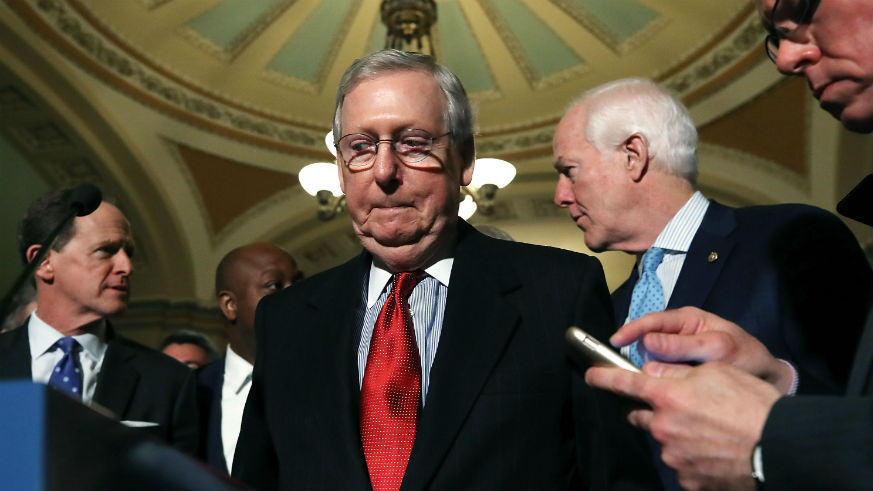Last week, Senate Democrats accused Republicans of rushing their partially written tax bill to an vote before low- and middle-income Americans could fully learn how it would affect them. As it turns out, the nation’s highest earners might also have howled in the light of day: The bill would tax some of them at more than 100%.
That potential marginal tax rate was caused by the collision of policies intended to help businesses and families but not the wealthiest Americans. As income gets higher, certain tax breaks phase out, so every dollar earned after that point is subject to regular taxes plus a hidden marginal rate in the form of disappearing tax breaks.
The Wall Street Journal attempts to explain:
Consider, for example, a married, self-employed New Jersey lawyer with three children and earnings of about $615,000. Getting $100 more in business income would force the lawyer to pay $105.45 in federal and state taxes, according to calculations by the conservative-leaning Tax Foundation. That is more than double the marginal tax rate that household faces today.
If the New Jersey lawyer’s stay-at-home spouse wanted a job, the first $100 of the spouse’s wages would require $107.79 in taxes. And the tax rates for similarly situated residents of California and New York City would be even higher, the Tax Foundation found. Analyses by the Tax Policy Center, which is run by a former Obama administration official, find similar results, with federal marginal rates as high as 85%, and those don’t include items such as state taxes, self-employment taxes or the phase-out of child tax credits.
Aside from the fact that a tax rate higher than 100% could generally be agreed to be a non-starter, economists say that such a policy would incentivize people to work up to a certain point and no more, and/or to seek offshore tax havens, which the GOP plan was touted to discourage via a lowering of the corporate tax rate.
A spokeswoman for the Senate Finance Committee says that the analyses “raise a valid concern.”
Luckily, House and Senate Republicans are in conference to reconcile their two versions of the bill, so there is an opportunity to fix the mess. Or to create another one: Republicans can only afford to lose three votes on the final bill. Sen. Bob Corker (R-TN) has already said he will vote no. Sen. Susan Collins (R-ME) voted for the Senate version of the bill, saying Senate Majority Leader Mitch McConnell assured her that two amendments she wanted would be attached.
They were not. Because those amendments involve shoring up the Obamacare health-insurance exchanges and paying Medicaid subsidies that President Trump has stopped, House Majority Leader Paul Ryan says he is not on board with them. Collins says she may change her vote if the two provisions don’t affix themselves to the final bill.



















